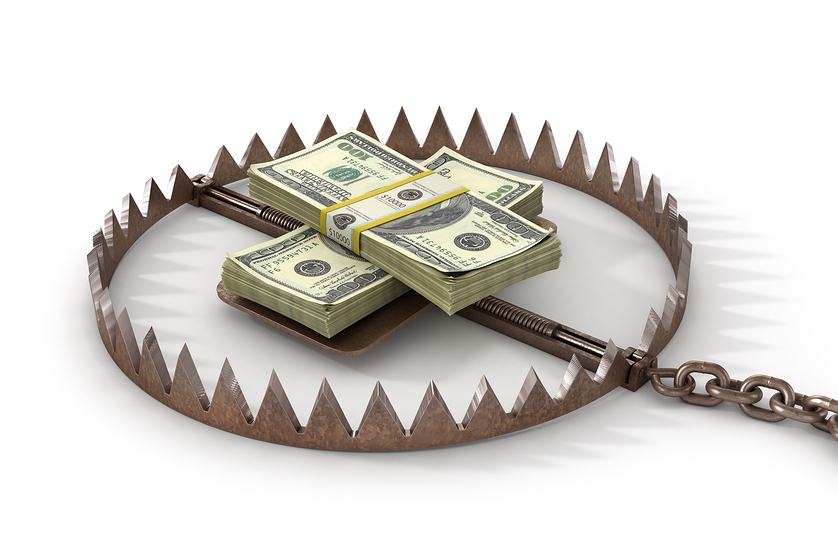Regularly examining your financial technique can assist you up to your loan video game.
Katherine Pomerantz, the owner of The Bookkeeping Artist, an accounting and financial method firm for little companies and entrepreneurs, understands how easy it is to get stuck in a monetary rut. While putting your financial resources on autopilot is a fantastic method to relieve the pressure of handling bills, paying off debt and saving for the future, it’s possible to automate your finances so much that you lose out on new chances to make your loan work harder for you. Pomerantz states lots of her customers utilize a cost savings account, for example, but she likes to assist them to try to find methods to “double down on growing their income.”
Could you also take advantage of taking a fresh appearance at your financial resources? Possibly you have actually been putting cash in the exact same kinds of bank accounts for several years, but haven’t examined how much you’re earning considering that interest rates are on the rise. Or perhaps you’ve increased your earning capacity ( congrats!) but have not changed your method to saving accordingly. Your savings diligence is admirable, however, it might be time to take stock of your financial strategy to see if there are other types of bank accounts you could utilize to optimize your loan.
Ask yourself: Where is my cash? Where should I keep my money? And, where should I keep my savings? As you evaluate your answers to these questions and consider moving your hard-earned dollars to different kinds of checking account, here are a few options to consider:
If: You utilize a monitoring account then: Think about rewards examining account
The majority of people use a checking account because it’s an easy place to keep cash, pay bills and make small purchases. If a checking account (and debit card) is part of your routine monetary regimen, you might want to find an account that rewards you for utilizing the account. Whether a bank pays interest on your balance or offers cash back on your debit card purchases, the benefit of rewards examining account is that it lets you make a little additional on the deals you’re already making every day.
However, choose thoroughly. Some kinds of checking account tie their rewards to high minimum balances, charge a month-to-month charge or limit rewards to deals that need a signature. Make certain you know the requirements and, when asking yourself where must I keep my money, also ask yourself whether you can fulfill any requirements regularly. Discover Cashback Debit allows you to earn 1% cash back on up to $3,000 in qualifying debit card purchases every month and has no month-to-month charges or month-to-month balance requirements.
If: You use a traditional cost savings account then: Consider an online savings account
A savings account is a great place for your emergency fund due to the fact that the loan can be quickly accessed when you require it.2 Interest rates, however, can be meager. When you’ve saved enough to cover your immediate emergency fund needs, it’s time to ask yourself: Where should I keep my savings?
“I like that [my online cost savings account] is at a different bank from where I do my standard banking since it makes it a bit less appealing to use the money when it’s not actually an emergency.”
–– Emilie Lima Burke, startup consultant and blog writer at Burke Does
While the rate of interest is altering quickly, online cost savings accounts may assist you to earn a better return. They’re similar to the accounts provided by conventional brick-and-mortar banks, however since online banks have lower overhead, they typically use greater rates. You might likewise have the ability to find accounts, like the Discover Online Savings Account, that have no monthly fees for maintenance or balance requirements. This implies your cost savings can grow quicker.
Emilie Lima Burke, a start-up expert, and blogger at Burke Does, utilizes an online cost savings account due to the fact that of the higher rate of interest.
“I like that mine is at a separate bank from where I do my traditional banking,” Burke states, “because it makes it a bit less tempting to utilize the money when it’s not, in fact, an emergency.”
If: You have a money market account then: Consider a certificate of deposit (CD)
When comparing kinds of bank accounts, consumers may select to conserve with a loan market account if they find one with a competitive interest rate and delight in the flexibility of withdrawing money when required (regardless of normal limitations on the variety of regular monthly withdrawals permitted from a loan market account). Money market accounts can also be attracting when they provide check writing and debit card gain access to. If you’re simply parking your money in a loan market account and don’t actually need to make withdrawals, you may be able to make more with a CD.
With a CD, you accept to leave your deposit for a set term. Normally, the longer the deposit duration, the higher the rates of interest. Chelsea Brennan, a financial investment professional and blog writer at Mother Fish Conserves, says the benefit of conserving for shorter-term goals with a CD is that your cash is most likely to stay dedicated to its function. Alternatively, when you can dip into the funds easily, similar to a money market account (and some other kinds of a savings account), “this only makes it more difficult to reach your ultimate goal,” she says.
If the answer to where ought to I keep my cost savings leads you to open a certificate of deposit, note that you’ll be charged an early withdrawal penalty if you take out your loan prior to the CD maturity date. You might desire to avoid putting your loan in a CD if there’s an opportunity you’ll need it to cover an emergency before it matures.
If: You use a 401( k) Then: Think About a Specific Retirement Account (IRA)
An employer-sponsored retirement plan is an exceptional workplace perk, especially if your company supplies a coordinating contribution. If you desire to increase your retirement cost savings, you could think about contributing cash to both a 401( k) and an Individual Retirement Account.
Opening a Roth IRA can be a method to diversify your retirement savings and create a tax-free stream of income for later in life, given that distributions are tax-free in retirement. Nevertheless, as you think about where must I keep my cost savings, it is very important to understand that contributions to a Roth IRA are limited by earnings, despite whether you participate in other retirement plans. Contributions to a standard IRA are tax-deferred now, but taxable in retirement.
Pomerantz, the owner of The Accounting Artist, works with a couple who is using an IRA to save for a house down payment. Usually, withdrawing cash from an Individual Retirement Account before the age of 59 & frac12; implies paying a 10 percent extra tax charge, according to the IRS. However, there is an exception if the loan is being used to purchase or build your first home.
Pomerantz states her clients currently have retirement cost savings in employer-sponsored accounts. They were trying to conserve for a down payment for their very first house, however, kept dipping into their cost savings account for other purchases.
“They wished to open an entirely different account that they could not withdraw from whenever they desired,” Pomerantz says. “That’s when they believed of opening an IRA. Their cost savings grew tremendously,” she states.
Where should I keep my loan?
If it’s been a while considering that you asked yourself where need to I keep my cash, it may be time to mix it up. Whether you wish to keep your cash available, or save it and let it grow, there are a number of types of bank accounts that can assist you to reach your monetary objectives. Whichever mix of accounts you pick, make certain to frequently sign in and examine that your financial setup is lined up with your short- and long-term goals.















Comments